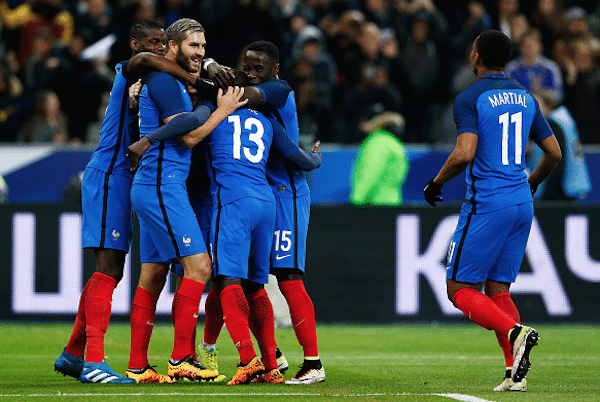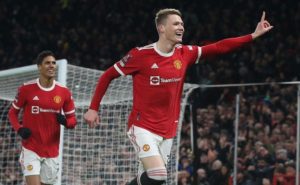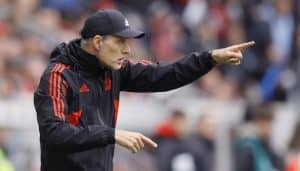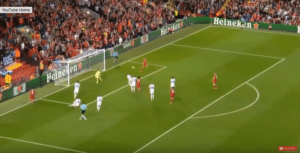The European Championships kicks off on Friday, MOGAMAD ALLIE takes a look at the main contenders for the title.
History is firmly on the side of France as they seek to join Spain and Germany as three-time winners of the European Championship.
Besides fielding arguably their most talented team for the past 15 years, a resurgent Les Blues side should also be able to bank on the same passionate home support that spurred them on to glory at the previous two major international tournaments they hosted – the 1984 European Championship and the 1998 World Cup.
In fact, France were the last nation to win both titles as hosts. Since then Portugal, led by the legendary Luis Figo, came closest to emulating the Gauls, reaching the final of Euro 2004 only to suffer a shock 1-0 defeat against Greece.
With the benefit of the experience gained from their 2014 World Cup campaign, in which they bowed out to eventual winners Germany in the quarter-finals, Didier Deschamps’ side are not only more battle hardened but they’ve also been significantly strengthened by the addition of exciting talents like Dimitri Payet and N’golo Kante while Paul Pogba and Antoine Griezmann have grown immensely in stature since their adventure in Brazil.
In Deschamps the French have a coach who has been in charge for nearly four years since taking over from former national teammate Laurent Blanc at the end of Euro 2012. As captain of the victorious 1998 World Cup and 2000 Euro sides, Deschamps knows what it takes to win major tournaments as he seeks to emulate Germany’s Berti Vogts, who lifted the trophy as a player in 1972 and coach in 1996.
The hosts’ strength clearly lies in their midfield, where they have quality ball winners and are spoilt for choice among their offensive weaponry. The abundance of riches at his disposal, particularly with the emergence of Payet and Kante, who have both had stellar seasons in England’s Premier League, gives Deschamps the kind of selection headaches most coaches would be only too happy to lose sleep over.
Such has been the Reunion-born Payet’s form for West Ham United this season that he’s forced Deschamps to backtrack on his earlier misgivings about the 27-old’s discipline and attitude.
The set-piece specialist should be joined by Griezmann, whose brace for Atletico Madrid famously eliminated a seemingly invincible Barcelona from the Uefa Champions League in mid-April. Kante’s exceptional engine provides France with a classic box-to-box operator and together with Blaise Matuidi they comprise one of the world’s most exciting and complete midfield combinations.
Then there’s Paul Pogba, one of Europe’s most coveted players. The 23-year-old first announced himself on the international stage two years ago at the World Cup in Brazil when he was named Young Player of the Tournament. Since then the Juventus midfielder has become the senior figure in France’s midfield and his reputation ensures he will be one of the tournament’s main attractions. As the team’s star player, a huge weight of expectation will fall on the powerful Pogba’s shoulders and the hosts’ chances of success could well depend on how he performs as the fulcrum of the team.
Equally adept as a deep-lying anchor protecting the defence or as a playmaker supporting the attack, the young midfielder’s excellent technical ability coupled with his distribution and fast developing goal-scoring ability gives Deschamps’ side a decided edge over the opposition.
Pogba’s main challenge will be to live up to the close scrutiny he is sure to be subjected to from the opposition and to remain on the right side of the referees – this season his new-found aggression has seen him collecting a total of 11 yellow cards for Juventus by the end of April.
The French FA’s decision to exclude Karim Benzema, due to the sex tape scandal involving national team mate Mathieu Valbuena, leaves the team without a top-class natural striker, although the abundant attacking qualities of their midfield should compensate for the absence of the Real Madrid ace.
The team’s one weakness may be in defence, particularly in the centre where a combination of Laurent Koscielny and Raphael Varane does not inspire too much confidence while out wide Patrice Evra and Bacary Sagna are experienced but lack the kind of quality that permeates the midfield.
Behind them though they have a very reliable goalkeeper in Hugo Lloris, whose solidity and calming influence played a major part in Tottenham Hotspurs’ run as the meanest defence in the English Premier League.
Tournament football normally brings the best out of Germany, which is why their patchy form over the past few months should be ignored. Goal-scoring has been a problem for the world champions, who rattled the net just 24 times in the qualifying campaign compared to the 36 they scored on their way to entering the draw for Brazil 2014.
Still, with goalkeeper Manuel Neuer, arguably still the world’s best, together with the central-defensive pairing of Jerome Boateng and Mats Hummels, the Germans are strong in defence.
They also have a midfield that is capable of holding its own against any opposition. Mesut Ozil, Toni Kroos, and Sami Khedira are all experienced operators who are primed to perform on the big stage.
The wily Thomas Muller’s attacking instincts make him an invaluable part of coach Joachim Low’s strategy while Mario Gomez, Julian Draxler, Andre Schurrle and Mario Gotze give Germany enough ammunition in attack.
Spain may have lost their aura of invincibility after their embarrassing first-round exit at the 2014 World Cup but they cannot be discounted as they seek a third consecutive title.
Despite a first qualifying defeat for eight years, in Slovakia, they finished top of their group with nine wins and a national record of eight consecutive clean sheets in competitive games.
The defending champions are far more potent with the creative David Silva in their side. His ability to prise gaps in the opposition defence that few others are able to pick, makes the Manchester City attacker a vital part of Vicente del Bosque’s team.
With experienced campaigners like Sergio Ramos, Gerard Pique and Andres Iniesta to call on, Del Bosque has enough quality in the team to ensure their involvement at the business end of the tournament.
With the rich array of talent in their ranks, Belgium have a better chance of claiming their first senior international title than many believe. Any team that is able to field gifted individuals like Eden Hazard, Radja Nainggolan, Kevin de Bruyne and Romelu Lukaku together with solid defenders like Toby Alderweireld and Jan Vertonghen should, on paper at least, be able to cope with most opposition.
The big challenge for coach Marc Wilmots is to mould those gifted individuals into a unit capable of performing as a well-organised and committed team.
– This article first appeared in the issue 96 of SportsClub magazine








